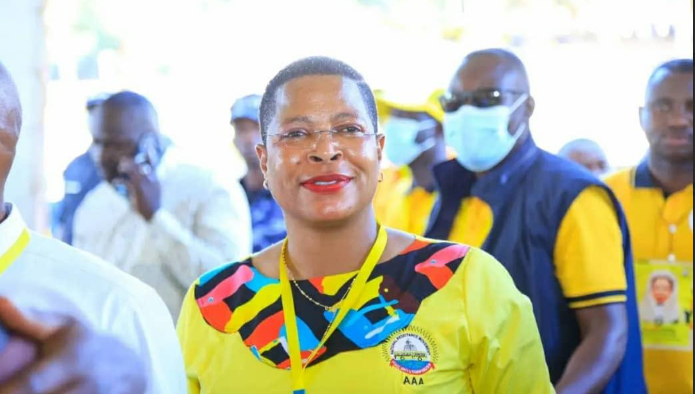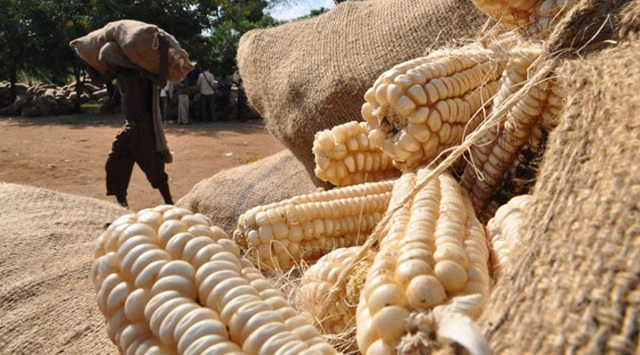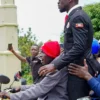Kampala — Uganda’s Electoral Commission (EC) is at the center of a growing storm after three women who intended to challenge Speaker of Parliament Anita Among for the Bukedea Woman MP seat were removed from the national voters’ register, sparking outrage from opposition leaders, lawyers, and civic groups.
The three affected aspirants — Mercy Marion Alupo of the National Unity Platform (NUP), Norma Susan Otai of the Forum for Democratic Change (FDC), and Hellen Akol Odeke of the National Resistance Movement (NRM) — were struck off the register after parish tribunals in Bukedea ruled they were not eligible voters in their areas of origin.
The revelation has ignited accusations of political interference and manipulation, with critics claiming the move was designed to shield Speaker Anita Among from competition in the upcoming 2026 general elections.
Bobi Wine Slams EC: “We’re Witnessing Unprecedented Impunity”
NUP President Robert Kyagulanyi, also known as Bobi Wine, condemned the EC’s actions, describing them as “a deliberate scheme to protect Anita Among” from credible challengers.
“These three women sought to challenge that shameless woman, Anita Among. None of them were ever invited for any tribunal hearing,” Kyagulanyi said Monday.
“Even after the case was filed in court, before it could be heard, the Electoral Commission sat last week and resolved to delete them. We are dealing with unprecedented impunity.”
He warned that such decisions erode public trust in the Commission and undermine Uganda’s democracy.
“Unless citizens stand up to end this nonsense, we are heading down a dark road,” he added.
Legal Experts: EC Misinterpreted the Law
Prominent lawyer Jonathan Elotu faulted the EC for violating the Electoral Commission Act, arguing that the affected candidates met the constitutional criteria for voter registration.
“When someone originates from an area, it is their place of origin — where they were born, where their family or ancestors came from, or where they are buried,” Elotu explained.
“Residence is where someone spends most of their time.”
Elotu cited Section 19 of the Electoral Commission Act, which entitles every Ugandan citizen aged 18 and above to register as a voter either in their parish of origin or residence.
He accused the EC of “horribly failing its duty” to uphold the law.
“Mercy Alupo is born of Bukedea and has family there, some buried. The EC only had one job and failed at it,” he said.
Mercy Alupo: “The System Is Volongoto”
NUP’s Mercy Marion Alupo, one of the affected candidates, directly accused the Bukedea Electoral Commission office of being compromised by political loyalty and nepotism.
In a fiery post on X (formerly Twitter), Alupo wrote:
“What is expected of a Bukedea Electoral Commission where Zipporah’s husband is in, and a commission that rents in her premises? Last time we saw how desperately she fought to see Emorut as one of the EC commissioners. System volongoto!”
Her remarks intensified the backlash, with many accusing the Commission of conflicts of interest and collusion with ruling party figures to block independent or opposition challengers.
EC Defends Its Decision
In an affidavit filed before the High Court, Richard Kamugisha Baabo, the EC’s Acting Secretary, defended the Commission’s actions, saying it followed due process and acted on decisions from parish tribunals in Kopeta, Kolir, Kotolut, and Kidongole sub-counties.
“The Commission upheld the decisions of the parish tribunals recommending deletion of the 1st, 2nd, and 3rd respondents based on the evidence adduced by the parties,” Baabo stated.
“The candidates were given ten days of natural justice to contest the findings but failed to do so.”
However, opposition lawyers and civic groups dismissed the EC’s explanation as unconvincing, claiming that the affected women were never informed or invited to defend themselves.
“If no one is notified, how can there be natural justice?” one election monitor questioned.
“This process reeks of political manipulation.”
Civil Society and Opposition Demand Accountability
Civil society organizations and election observers have urged the High Court to intervene, calling for an immediate review of the EC’s actions.
“If the EC can arbitrarily delete opposition candidates in Bukedea, it can happen anywhere,” said a political analyst who requested anonymity.
“This isn’t just about one district — it’s about the integrity of Uganda’s 2026 elections.”
Analysts warn that the move could set a dangerous precedent, allowing powerful figures to manipulate the register and bar legitimate challengers through administrative technicalities.
Groups like the Citizens Election Watch Network and the Uganda Law Society have called for greater transparency in EC operations, urging Parliament to strengthen oversight of the Commission before next year’s polls
Outrage in Bukedea: “They’re Afraid of Her Popularity”
The EC’s decision has triggered public fury in Bukedea, where residents accuse the Commission of acting under Anita Among’s influence to silence competition.
In Kolir, Kachumbala, and Kidongole sub-counties, locals gathered at trading centers Monday evening to express anger over the deletions.
“We know Mercy Alupo; she was born here, her parents are buried here. How can they say she is not from Bukedea?” said Scovia Akol, a teacher from Kolir.
“This is not democracy. They are afraid of her popularity.”
Others accused the EC of undermining Bukedea’s right to choose its leaders.
“They’re trying to force us to support one person,” said David Ochen, a local farmer.
“Even if they delete her from the register, we will still support Alupo. She is our daughter.”
Community leaders warned that the growing anger could deepen political divisions in Bukedea and hurt NRM’s popularity in the region ahead of the 2026 elections.
A Test for Uganda’s Democracy
As the High Court prepares to hear the case in the coming days, all eyes are on the Electoral Commission — and how it handles the mounting pressure to restore confidence in its independence.
Analysts say this controversy could become a litmus test for Uganda’s democracy as it heads into the 2026 general elections.
“What’s happening in Bukedea may define how fair or unfair the 2026 race will be,” said one political observer.
“If the EC cannot protect the rights of candidates, how can it protect the rights of voters?”
With opposition voices growing louder and public outrage spreading, the Commission faces a defining moment: either prove its impartiality or risk being seen as a political weapon in Uganda’s already tense electoral climate.





